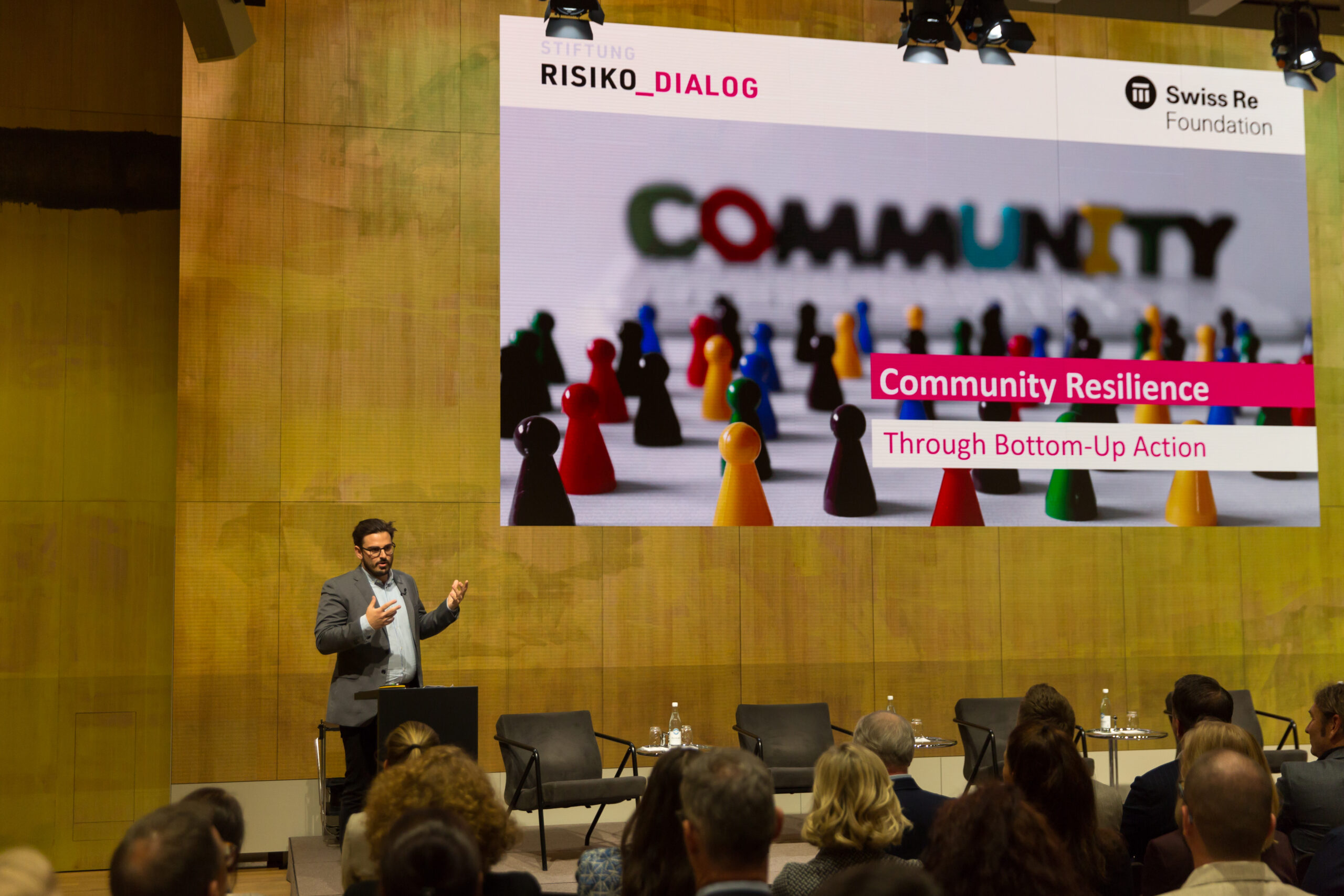Project_
Community resilience through bottom-up initiatives

Because of current and future crises, it is central to research and promote sustainable approaches to crisis management. In a study supported by the Swiss Re Foundation, we investigated the engagement of bottom-up initiatives in times of crisis. It showed that self-organizing initiatives from the population and civil society are crucial for social resilience and for sustainable crisis management – complementing more top-down approaches.
With each new crisis, it becomes increasingly clear that the goal is no longer just to prevent crises, but to sustainably manage them and emerge from them as a strengthened community. Since the Covid-19 pandemic, we also know that exclusive top-down crisis management falls short. In our study, we therefore investigated the relationship between bottom-up initiatives and a society’s crisis resilience. We focused on social resilience, specifically on the resilience of communities such as neighborhoods, municipalities, or people with similar concerns (community resilience), and on social actors who respond to a crisis spontaneously and self-organized (bottom-up initiatives).
The analysis of the engagement of various bottom-up initiatives showed: people are willing to join together as a community and support each other in a crisis. In this context, bottom-up initiatives cannot and should not replace top-down approaches; rather, the interaction of top-down and bottom-up efforts is needed for resilient crisis management. It also became apparent that processes and structures to support bottom-up initiatives in Switzerland need to be further developed. Such support can be multifaceted, ranging from financial resources, support in communication to symbolic appreciation.
In addition, the analysis highlighted the reciprocal relationship between bottom-up initiatives and community resilience: bottom-up initiatives can strengthen community resilience, while the emergence of new bottom-up initiatives can also indicate existing community resilience. It is imperative that this interrelationship be part of further analysis and derived recommendations for crisis management.
For more insights, see the study here.
What’s next?
Based on the results of the study, Risk Dialog has developed the following approaches for a resilience culture in Switzerland, which are applied in the program to strengthen societal resilience:
- Understanding resilience even better, e.g., how collaboration between top-down and bottom-up engagement can be strengthened.
- Shaping resilience together, e.g., by expanding networking among relevant stakeholders.
- Foster resilience capabilities, e.g., by creating new forms of support for bottom-up initiatives.


